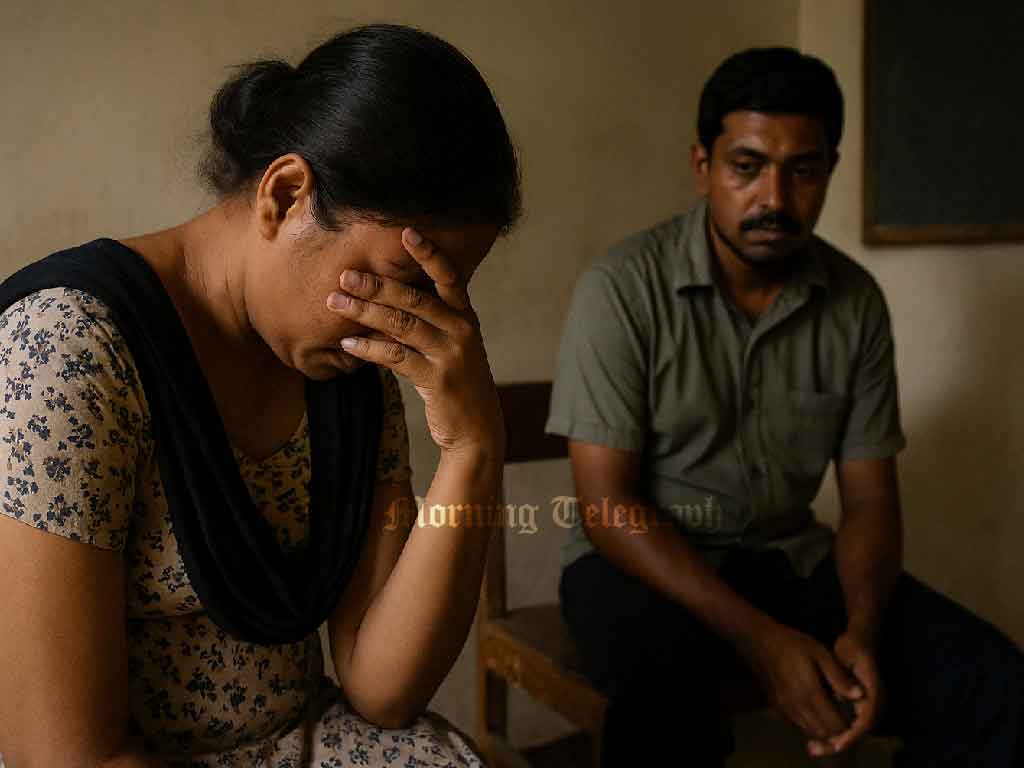
By Marlon Dale Ferreira
In a quiet suburb of Kandy, a high-ranking official at a private firm – let’s call him Aruna, found his life take an unexpected and terrifying turn. His wife, already a mother of two, was pregnant again. The pregnancy was unplanned and unwanted. Despite their efforts to prevent it, something had failed. They were not prepared, emotionally or financially, to raise a third child. And in a country where abortion is illegal, their only option was to go underground.
“We weren’t ready. We didn’t want another child. We just wanted to be free from it,” Aruna recalled. “But there was no safe way out.”
The couple had relied on birth control pills, believing they were protected. When the pregnancy was discovered, panic set in. They sought the help of a specialist, only to be told what they already feared: under Sri Lankan law, abortion is illegal unless the mother’s life is at risk. No exceptions, not for rape, not for fetal deformity, not for economic hardship. The doctor did not agree to perform the procedure but hinted that there were countries where it was legal. For Aruna and his wife, leaving the country wasn’t feasible. They had responsibilities at home, and too many eyes watching.
Eventually, through a friend, Aruna learned of someone, allegedly a doctor, who carried out abortions discreetly. The place wasn’t a hospital, but a large house set up to look like one. “I didn’t know if he was a real doctor. I was terrified something would happen to my wife,” Aruna said. “But we had no choice.”
The cost was high. The risk even higher. By the time they made the decision, his wife was nearly three months pregnant. The procedure was done in silence, far from public view, without the safety or oversight of a proper medical facility.
This is not an isolated incident. In Sri Lanka, stories like Aruna’s play out daily.
According to research by Professor K. Karunathilaka, over 240,000 illegal abortions take place every year in Sri Lanka—more than 650 each day. These are not safe, regulated procedures, but often risky and exploitative operations carried out in secrecy. Women who undergo these procedures can face life-threatening complications. Some are sexually abused by the very people they turn to for help. Others suffer infections or incomplete terminations that later land them in hospital wards under false explanations.
One such tragedy recently surfaced in Avissawella, where a woman died from an allergic reaction after using medication obtained from a pharmacy without medical guidance. Reports suggest she had taken the drugs to induce an abortion. The fetus was sent for examination, but the full story remained cloaked in silence.
The legal landscape in Sri Lanka is unyielding. Section 303 of the Penal Code prohibits abortion unless the life of the pregnant woman is in danger. Violators can face up to three years in prison. If the pregnancy is close to term, or if an abortion is performed without the woman’s consent, the penalty rises to seven years. Even in cases of rape or fatal birth defects, abortion remains illegal.
Despite numerous attempts by governments to reform the law, strong resistance from religious and conservative factions has blocked every effort. But as the tide of public concern grows, some voices are breaking through.
Dr. Rohan P. Ruwanpura, Chief Forensic Medical Officer at Karapitiya Hospital, argues that the law is out of step with science and society. “The law cannot control science,” he states. “There are legitimate humanitarian, social, and medical reasons for abortion. But because the law is too strict, people turn to illegal providers—where young women are sometimes abused or left with incomplete procedures.”
In certain countries, abortions are performed by trained professionals in clinical settings, following medical and ethical guidelines. In Sri Lanka, by contrast, only the wealthy can afford to travel abroad or access discreet private services. The poor are left with no choice but to risk their health and often their lives.
Dr. Ruwanpura is clear about where the right to decide lies. “When a woman is raped, the child carries half the genes of the rapist. The decision to carry that pregnancy must belong to the woman, not religious leaders, not politicians.”
His argument is not about morality, it is about agency. It is about the right of a woman to decide what happens to her own body.
For Aruna and his wife, the ordeal is behind them now. But the scars remain. “If there had been a legal way, a safe way, we wouldn’t have gone through that fear. We wouldn’t have risked her life,” he says.
Their story is just one among thousands, most untold. In a nation where the law silences personal choice, the cost is paid in fear, suffering, and too often, in lives lost. The question is no longer if reform is needed. It’s whether Sri Lanka is ready to listen.




